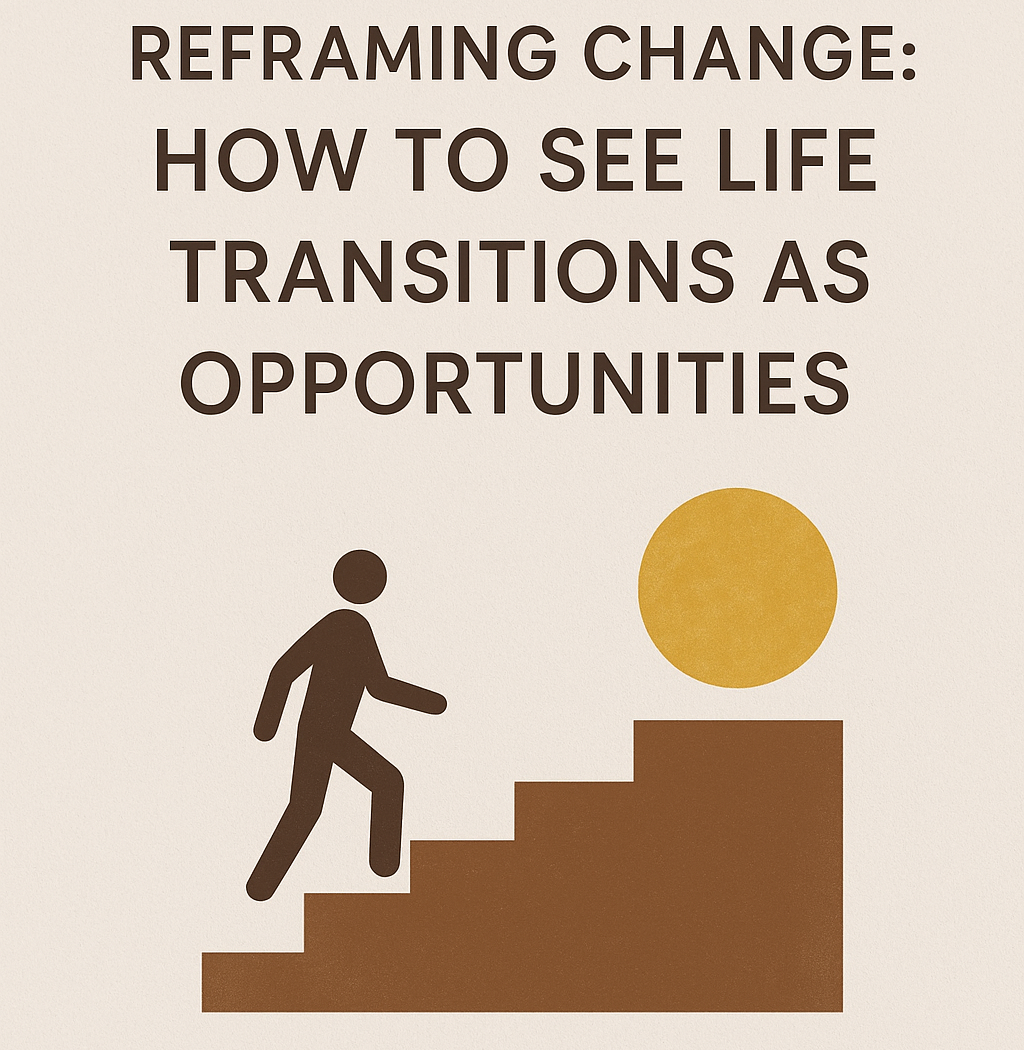Reframing Change: How to See Life Transitions as Opportunities

By Karen D. Sacks, Center for Counseling and Rational Solutions
Change is one of life’s few guarantees and yet, it’s something most of us struggle with. Whether it’s a relationship ending, a career shift, a move, or a major life milestone, transitions often stir up feelings of fear, uncertainty, or loss. It’s easy to view change as something that happens to us rather than something that can work for us.
What if change, no matter how uncomfortable, could be an invitation for growth? When we reframe how we see transitions, they can become powerful opportunities to rediscover ourselves, build resilience, and create a more fulfilling life.
The Fear of Change Is Human
Our brains are wired for familiarity. Routine feels safe, predictable, and comforting — so when life shifts, our natural instinct is to resist. You might find yourself thinking:
- “I just want things to go back to how they were.”
- “I can’t handle this.”
- “What if things get worse?”
These thoughts are understandable. But they also limit our ability to see what else might be possible. By reframing these fears, we open the door to new perspectives.
The Growth Hidden in Transition
Every transition, no matter how difficult, holds the potential to teach us something valuable. Change challenges us to:
- Reassess what truly matters.
- Discover strengths we didn’t know we had.
- Reconnect with our values and goals.
- Let go of what no longer serves us.
Just as a seed must break open for new growth to occur, we often need to move through discomfort before we can transform.
How to Reframe Change in a Healthier Way
- Acknowledge What You’re Feeling
It’s okay to grieve the loss of what was familiar. Healing begins when you allow your emotions — fear, sadness, even anger — to exist without judgment. - Focus on What You Can Control
Instead of fixating on what’s ending, shift your energy toward what’s beginning. Ask yourself: What small step can I take today toward adapting or growing? - Look for the Lesson
Every transition carries insight. What have you learned about yourself through this experience? What new possibilities are unfolding? - Seek Support
You don’t have to navigate change alone. Talking with a therapist can help you process emotions and find meaning in the transition.
Change as a Path to Renewal
Change is rarely easy — but it’s often necessary for growth. When we reframe life transitions as opportunities instead of obstacles, we move from resistance to acceptance, from fear to curiosity, and from loss to potential.
At the Center for Counseling and Rational Solutions, we help clients navigate life’s changes with compassion and clarity, empowering them to see transitions as stepping stones toward a stronger, more authentic self.

